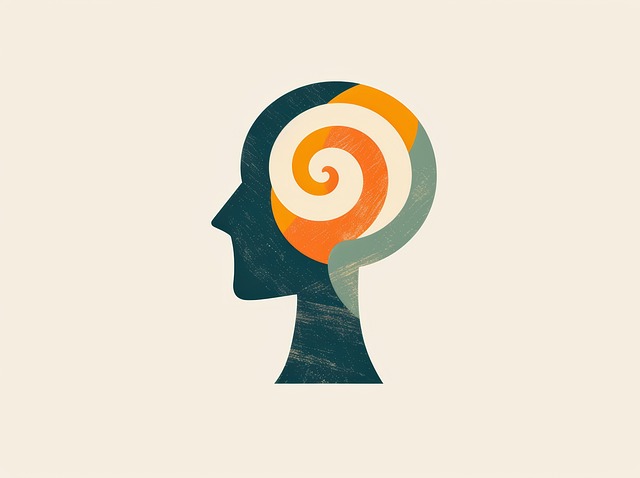Castle Rock Cognitive Behavioral Therapy (CBT) is a powerful tool for enhancing mental wellness, focusing on changing negative thought patterns and behaviors, thereby improving emotional intelligence and self-esteem. In coaching contexts, CBT coaches help clients gain insights into their thinking, challenge negative beliefs, and adopt healthier alternatives to manage stress and prevent burnout. Impactful mental wellness coaching programs blend evidence-based practices like CBT with personalized strategies, incorporating mindfulness exercises, compassion cultivation, art therapy, and journaling for diverse learning styles. Regular feedback ensures program effectiveness and responsiveness to unique client challenges, while integrating cultural competency training and stress management workshops further enhances CBT's effectiveness.
Mental wellness coaching programs are gaining traction as effective tools for personal growth. This article explores the integration of Castle Rock Cognitive Behavioral Therapy (CBT), a proven approach, into coaching methodologies. We’ll uncover key components and strategies for designing successful mental wellness coaching, focusing on CBT techniques to enhance client outcomes. By understanding these principles, professionals can create tailored programs that support individuals in navigating their mental health journeys towards improved well-being.
- Understanding Castle Rock Cognitive Behavioral Therapy (CBT) and Its Role in Mental Wellness Coaching
- Designing Effective Mental Wellness Coaching Programs: Key Components and Strategies
- Implementing and Evaluating CBT Techniques within Coaching Environments for Optimal Client Outcomes
Understanding Castle Rock Cognitive Behavioral Therapy (CBT) and Its Role in Mental Wellness Coaching

Castle Rock Cognitive Behavioral Therapy (CBT) is a highly effective approach that focuses on identifying and changing negative thought patterns and behaviors. This therapy recognizes that our thoughts, feelings, and actions are interconnected, and by modifying cognitive processes, individuals can achieve significant improvements in their mental wellness. CBT is not just about treating specific disorders; it equips people with valuable tools for navigating life’s challenges, fostering emotional intelligence, and boosting self-esteem.
In the context of mental wellness coaching, Castle Rock Cognitive Behavioral Therapy plays a pivotal role. Coaches using this method help clients gain insight into their thought processes, challenge negative beliefs, and replace them with healthier alternatives. This process not only enhances coping strategies but also prevents burnout by teaching individuals to manage stress more effectively. By combining CBT techniques with coaching, professionals can facilitate transformative journeys towards improved mental health and overall well-being.
Designing Effective Mental Wellness Coaching Programs: Key Components and Strategies

Designing effective mental wellness coaching programs requires a multifaceted approach that combines evidence-based practices with personalized strategies. Castle Rock Cognitive Behavioral Therapy (CBT) has proven to be an invaluable tool in addressing various mental health concerns, making it a cornerstone of many successful coaching programs. By integrating CBT techniques, coaches can help clients identify and change negative thought patterns and behaviors, thereby enhancing their overall well-being.
Key components include establishing clear goals, conducting thorough risk assessments for mental health professionals, and fostering a safe, compassionate environment. Strategies such as mindfulness exercises and compassion cultivation practices have been shown to boost confidence and promote resilience. Coaches should also tailor sessions to meet individual needs, incorporating creative techniques like art therapy or journaling to cater to diverse learning styles. Regular feedback and ongoing evaluation ensure the program remains effective and responsive to clients’ evolving challenges.
Implementing and Evaluating CBT Techniques within Coaching Environments for Optimal Client Outcomes

Implementing Castle Rock Cognitive Behavioral Therapy (CBT) techniques within coaching environments offers a powerful approach to enhancing client outcomes. CBT focuses on identifying and modifying negative thought patterns, providing clients with practical tools for managing mood and stress. Coaches can incorporate CBT strategies to help individuals gain insights into their emotions and behaviors, fostering self-awareness and personal growth. By teaching effective coping mechanisms, such as mindfulness techniques and problem-solving skills, coaches enable clients to navigate challenges with resilience.
Evaluating the success of these interventions is crucial for continuous improvement. Coaches should regularly assess client progress using standardized measures and qualitative feedback. This data allows for tailoring coaching strategies, ensuring they remain aligned with the evolving needs of each individual. Moreover, integrating Healthcare Provider Cultural Competency Training can enhance the effectiveness of CBT by addressing diverse cultural perspectives, thereby improving engagement and outcome. Stress Management Workshops organized within organizations can also complement coaching programs, providing group support and reinforcing learned skills.
In conclusion, integrating Castle Rock Cognitive Behavioral Therapy (CBT) techniques into mental wellness coaching programs proves to be a powerful approach. By understanding CBT’s role and designing effective programs with key components, coaches can significantly enhance client outcomes. Implementing and evaluating these strategies ensures that clients receive the best possible support for their mental health journey. This article has provided valuable insights into developing comprehensive and successful coaching programs utilizing Castle Rock Cognitive Behavioral Therapy principles.














